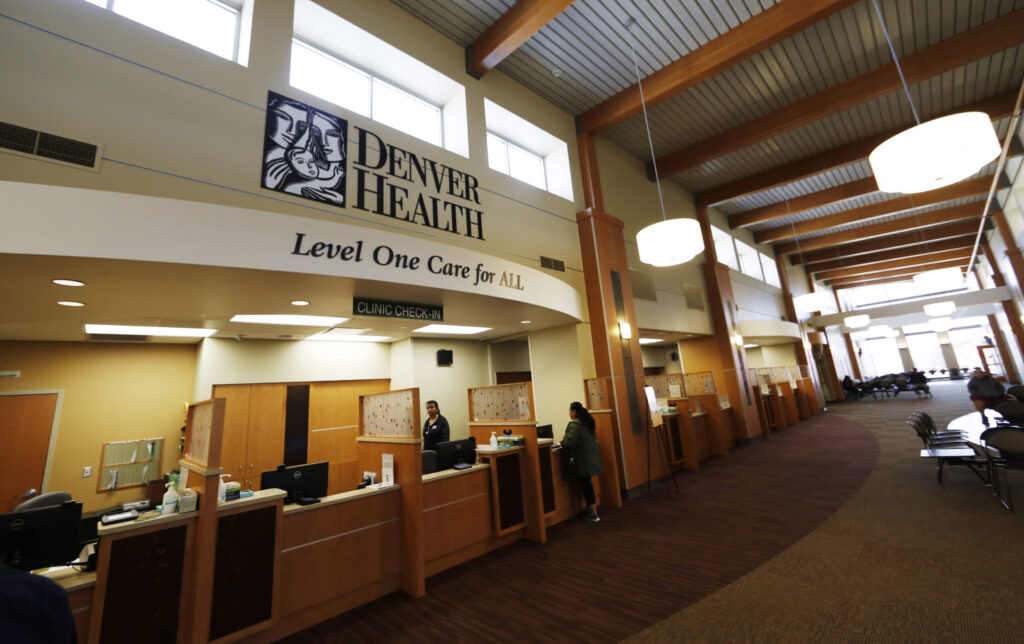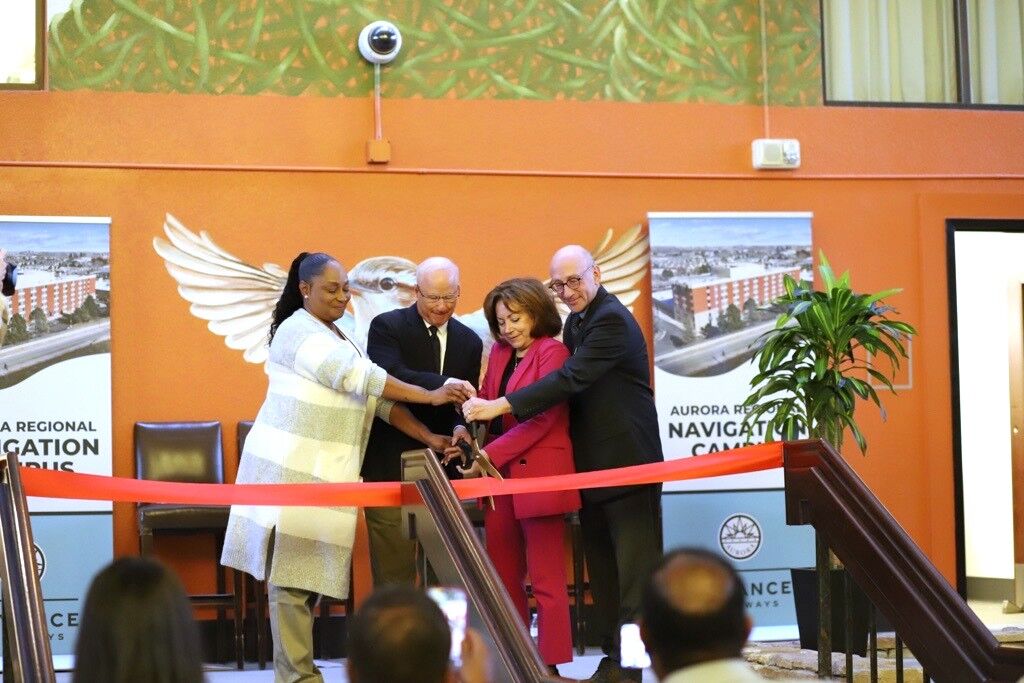Report: None of Colorado’s largest hospitals are in compliance with federal pricing transparency law

In January 2021, a federal law went into effect that mandated the nation’s hospitals provide clear and easily accessible online pricing information so the public can know in advance how much a treatment costs.
To backers, the idea was to finally penetrate the murkiness of health-care charges to not only help patients make good choices when seeking care but expose overcharging and abuse.
In the more than two years since, though, adherence by many hospitals has been slow – and, in some cases, dismal.
It is especially troubling in Colorado, where not one of 32 of the state’s largest hospitals’ websites analyzed by an advocacy group had fully complied with the federal law, according to the nonprofit PatientsRightsAdvocate.org.
The national patient advocacy report found a range of noncompliance issues, with some hospitals only having one deficiency while others had multiple ones. The issues included failure to provide adequate price of a negotiated rate, to incomplete or overbroad descriptions of services which make price comparison difficult.
Nationally, only about 1 in 4 hospitals were in full compliance, the organization’s review of 2,000 major hospitals found.
On Thursday, Colorado lawmakers took a nation-leading step toward backstopping the federal law by advancing a measure that would force the state’s hospital price transparency and add some enforcement muscle if they don’t.
In a bipartisan vote of 7-2, members of the state Senate Health and Human Services Committee approved Senate Bill 23-252. It now moves to the Senate floor for debate.
Introduced late last month, SB 252 requires Colorado hospitals to make public and easily accessible by computer a list of standard charges for items and services provided to patients. The standard charges include the billed amount by the hospital or “chargemaster” price that is sometimes likened to the sticker price before negotiation. It also would require listing the negotiated charge, which is what is paid by insurers or the government, as well as the discounted cash price, which is often dramatically less.
Hospital pricing in Colorado has been a hot-button issue for years, as the state has been shown to have some of the highest prices in the nation, as well as among the highest profit margins.
Last year, lawmakers overwhelmingly approved a measure that would prevent a hospital from taking some debt-collection actions if it was not in compliance with price transparency requirements.
This year’s legislation is a continuation of efforts to press Colorado hospitals to follow the federal law.
Supporters say the proposal is the next step toward transparency, while critics argue that safeguards are already in place and the proposed legislation could confuse consumers.
If passed, SB 252 will require the state’s hospitals to regularly report to the Colorado Department of Health Care Policy and Financing, which will monitor compliance. A violation will result in a warning and public posting on the agency’s website. If noncompliance continues, the hospital could be referred to the state attorney general as a violation of the state’s deceptive trade practices law.
“Coloradans deserve to know what their medical bills will look like before going into treatment or surgery,” Sen. Julie Gonzales, the Democrat majority whip from Denver and one of the bill’s sponsors, said in a statement Thursday night. “We’ve made great progress in our work to protect consumers and lower the costs of health care, but there’s still more we can do. It’s time to take the next step and increase medical price transparency so Coloradans aren’t blindsided with big bills after receiving care.”
She also posted a picture on Twitter of herself and Sen. Kevin Van Winkle, a Republican co-sponsor of the legislation, writing, “I joked in committee that I don’t agree often with @SenatorKVW, but when we do, it’s pretty great.”
At the committee hearing, Cyndy Reddy of Broomfield testified she was hit with a $64,000 out-of-pocket bill for a hysterectomy after thinking it would be covered by her insurance, which it was not. The bill was sent to collections, she said, and debt collectors have hounded her, asking her to list her assets.
Only later did she learn that the cash price for the procedure was one-third of the price she was billed.
“If I’d known this would happen, I could’ve shopped and saved,” she said, according to a transcript of her testimony. “Shame on the hospital for not telling me what it would have cost upfront.”
“If you don’t have a price, how can patients protect themselves?” said Cynthia Fisher, founder and chairperson of PatientsRightsAdvocate.org. “As long as hospitals and insurance companies keep patients in the dark, they can charge whatever they want.”
She added in an interview she thinks it is no accident that many hospitals have been slow to comply with the federal law. She applauded Colorado lawmakers for being on the forefront of adding state protections.
The Colorado Hospital Association said SB 252 could confuse consumers as it “creates the potential for conflict between state and federal law,” said Cara Welch, senior director of communications for the association in an email on Friday.
Skeptical of the PatientRightsAdvocate.org findings, she said Colorado hospitals “have a long history of supporting meaningful price transparency that helps patients understand their financial responsibility in advance of receiving care.”
Welch added that compliance with the federal law falls under the Centers for Medicare & Medicaid Services, and that agency recently published a blog that looked at 600 hospitals in late 2022 and found “substantial progress” in transparency.
But the blog also acknowledged that, while the majority of the hospitals reviewed are in compliance, about 30% must “still do more.” It added that its review results cannot be used to determine compliance with all requirements.
The CMS report said it has issued about 500 warning notices to hospitals across the nation and requested 230 corrective actions. Only two hospitals, both in Georgia, have received fines from CMS for noncompliance in the more than two years the law has been in effect.
Welch stressed no Colorado hospital has been fined by CMS.
The state’s Health Care Policy and Financing Department last month issued its own findings, examining the price transparency at 83 Colorado hospitals. A little over a quarter received a “good” rating price as of November 2022. Low scores in the department’s scorecard typically were a result of not including all insurance plans. This omission, the report said, “greatly diminishes” a hospital price tool’s effectiveness.
“Unfortunately, independent studies indicate Colorado hospitals do not meet the requirements of the federal rule,” the report concluded.















